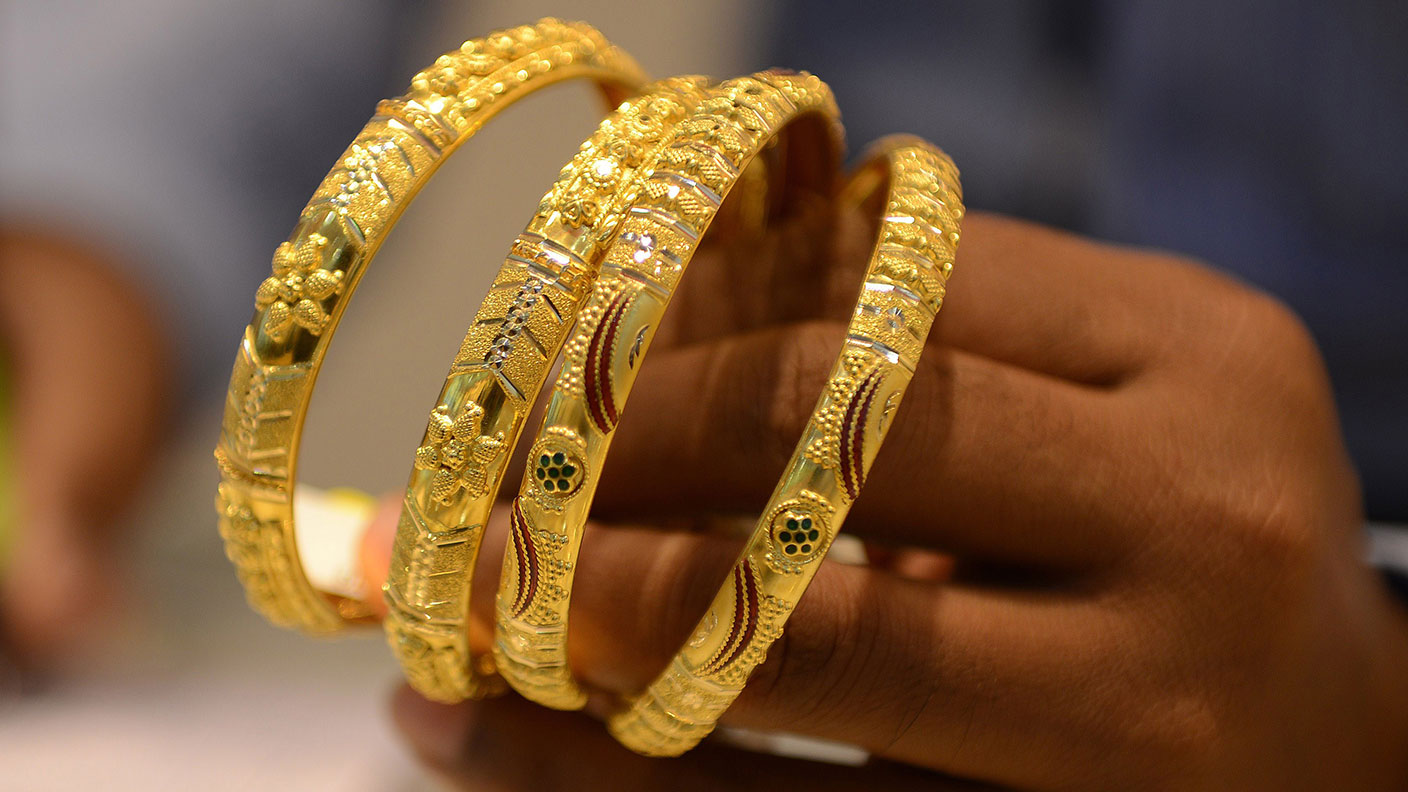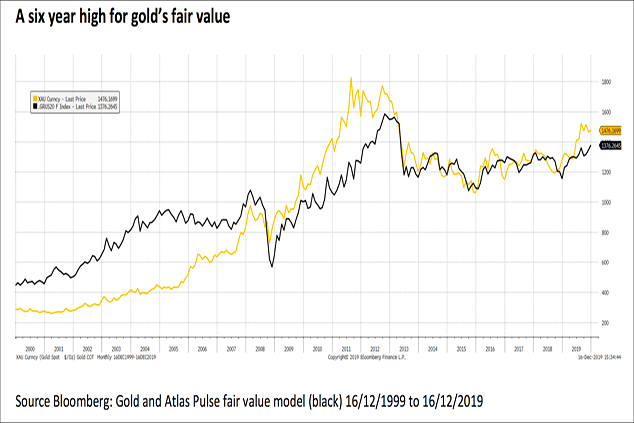Gold’s quiet comeback
Gold has been among the best performing assets this year and could continue rising.

Get the latest financial news, insights and expert analysis from our award-winning MoneyWeek team, to help you understand what really matters when it comes to your finances.
You are now subscribed
Your newsletter sign-up was successful
Want to add more newsletters?

Twice daily
MoneyWeek
Get the latest financial news, insights and expert analysis from our award-winning MoneyWeek team, to help you understand what really matters when it comes to your finances.

Four times a week
Look After My Bills
Sign up to our free money-saving newsletter, filled with the latest news and expert advice to help you find the best tips and deals for managing your bills. Start saving today!
Gold has made an unheralded, but impressive comeback this year following a 30% drop in 2013. It has risen by over 9%, beating commodities, bonds and UK equities. It hit a four-month high of around $1,340 last month as the eurozone crisis briefly flared up again. Further gains look likely over the next few years.
Gold struggled last year as the US Federal Reserve began to taper' the amount of money it was printing. The prospect of even mildly tighter US monetary policy was seen as bad news for an asset that thrives on fear, bad news, and the threat of inflation. But tapering is now "priced in", reckons Citigroup.
With interest rates still at historic lows, fears of eventual inflation have hardly gone away. And the longer rates stay low, the greater the risk of bubbles forming and bursting, adds Bank of America Merrill Lynch (BAML), a worry that may bring new buyers into the market.
MoneyWeek
Subscribe to MoneyWeek today and get your first six magazine issues absolutely FREE

Sign up to Money Morning
Don't miss the latest investment and personal finances news, market analysis, plus money-saving tips with our free twice-daily newsletter
Don't miss the latest investment and personal finances news, market analysis, plus money-saving tips with our free twice-daily newsletter
The appetite for gold from central banks and increasingly wealthy consumers in emerging markets remains healthy. Demand for gold jewellery has just recorded its best first quarter since 2005, according to the World Gold Council.
Throw in a wide range of geopolitical jitters, and it's no wonder BAML sees gold averaging $1,375 next year, up from $1,308 in 2014.
Get the latest financial news, insights and expert analysis from our award-winning MoneyWeek team, to help you understand what really matters when it comes to your finances.

-
 Should you buy an active ETF?
Should you buy an active ETF?ETFs are often mischaracterised as passive products, but they can be a convenient way to add active management to your portfolio
-
 Power up your pension before 5 April – easy ways to save before the tax year end
Power up your pension before 5 April – easy ways to save before the tax year endWith the end of the tax year looming, pension savers currently have a window to review and maximise what’s going into their retirement funds – we look at how
-
 'Investors should brace for Trump’s great inflation'
'Investors should brace for Trump’s great inflation'Opinion Donald Trump's actions against Federal Reserve chair Jerome Powell will likely stoke rising prices. Investors should prepare for the worst, says Matthew Lynn
-
 Metals prices wobble on slowdown fears
Metals prices wobble on slowdown fearsNews The S&P GSCI index of 24 major raw materials has fallen back 9% since mid-June on growing fears of a recession, and copper has hit a 16-month low after losing 22% since a peak in early March.
-
 How to invest in energy and metals as tech stocks crash
How to invest in energy and metals as tech stocks crashAnalysis It’s been a terrible week for stockmarkets. But not everything is crashing – “real” assets such as metals and energy are holding up well and should have a good 2022. Dominic Frisby picks the best ways to buy in.
-
Gold regains some of its shine
News The gold price perked up this week, hitting a four-week high.
-
 Gold regains its shine after inflation risks resurface
Gold regains its shine after inflation risks resurfaceAnalysis Gold prices have been rising over the past month as fears of US inflation resurface. Saloni Sardana explains whether this could usher in a new bullish era for the precious metal.
-
 The going looks good for gold
The going looks good for goldAdvice With inflation fears rising and interest rates nailed to the floor, the outlook for gold is bright, says John Stepek.
-
 Governments’ money-printing mania bodes well for base metals
Governments’ money-printing mania bodes well for base metalsTips Money is being printed like there is no tomorrow. Much of it will be used to pay for infrastructure projects – and that will be good for metals, says Dominic Frisby.
-
 Here’s how gold could rise above $7,000 an ounce
Here’s how gold could rise above $7,000 an ounceFeatures That the gold price could hit $7,000 an ounce is a logical and plausible possibility, says Charlie Morris. Here, he explains how it could get there.